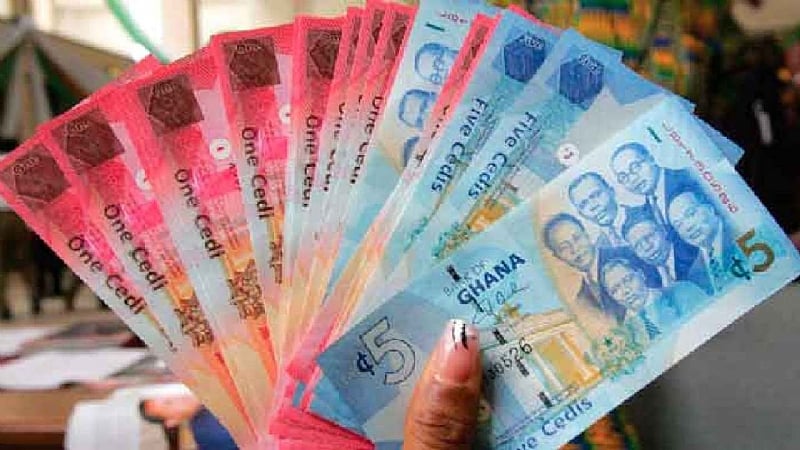As of October 5, 2024, the Ghanaian Cedi has crossed a significant threshold, trading at more than 17 cedis to 1 US dollar for online transactions involving card payments, particularly with Mastercard. For those planning to renew their subscriptions to services like Netflix, Spotify, or Apple Music using Visa and Mastercard, the current exchange rates reflect a value close to GHS16.98 for Mastercard and GHS17.01 for Visa. This indicates that consumers are increasingly feeling the impact of currency depreciation on digital transactions. In the retail market, the exchange needle has shifted slightly, with the Cedi exhibiting stability in buying rates while experiencing a marginal increase in selling rates, which climbed by 1 pesewa compared to the previous Friday’s benchmark.
On the morning of October 5, the buying rate for the Cedi stood at GHS15.71, whereas the selling rate was slightly higher at GHS16.21, as reported by Cedirates.com, a trusted local source for currency and fuel exchange updates. Within the interbank market, the Cedi’s trading figures suggest a buying rate of GHS15.78 and a selling rate of GHS15.80 against the US dollar. This has created an ongoing conversation regarding the performance of the Cedi amid fluctuating economic conditions and currency values. These shifts emphasize the importance of remaining informed on the latest currency trends, especially for businesses and individuals engaged in international trade or online services.
The currency exchange rates do not stop at the US dollar; they extend to other significant currencies like the British Pound and the Euro. Currently, the average buying and selling rates for the British Pound are GHS20.54 and GHS21.40, respectively, while the interbank market showcases a selling price of GHS20.71 for the Pound. Likewise, the Euro is being traded at GHS17.17 for buying and GHS17.96 for selling, with a current interbank selling rate of GHS17.31. These rates give a thorough perspective on how the Cedi stands not just against the US dollar but also prominent European currencies, reflecting the broader economic dynamics at play.
In terms of remittance services, platforms like LemFi and Afriex provide alternative methods for sending money to Ghana, with competitive exchange rates. For instance, those sending USD from the US can benefit from rates of GHS15.75 via LemFi and GHS15.42 through Afriex, demonstrating the varying costs of transfer services. Additionally, these money transfer services offer buying and selling rates for the British Pound that are GHS20.65 and GHS21.01, respectively. It’s crucial for users of these platforms to be aware of these rates, as they can significantly affect the total amount received after currency conversion.
Afriex remains one of the few services that have updated Euro rates as of the latest data, providing a selling price of GHS16.76 for each Euro. This selective updating of forex rates emphasizes the importance of using reliable platforms for currency exchanges and money transfers. By staying current with the latest exchange rates, individuals and businesses can maximize their financial advantages, particularly in scenarios involving regular subscriptions or international financial transactions.
Overall, as the Ghanaian Cedi continues to face challenges against major currencies, users who are involved in online payments or international money transfers must keep a keen eye on the evolving rates and trends. The fluctuations being observed across different platforms underscore the interconnectedness of global markets and local economies. Consequently, informed decisions will be critical in navigating the financial landscape, amid the growing complexity of currency exchanges and the financial implications for everyday spending and international trade.














